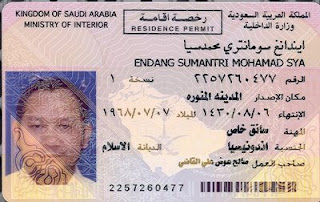By Habib Toumi, Bureau Chief
Gulf News | Manama
September 24, 2012
A Saudi mother married to a foreigner can sponsor her son provided her husband relinquishes his sponsorship right in writing, an official has said.
“The mother can then sponsor her son provided that he is less than 18 years old,” an official from the Madinah Passports department told local Arabic daily Al Madinah.
“She can sponsor him as a student. However, if he is over 18, the age when he is supposed to be removed from his father’s sponsorship, she registers him under her sponsorship as an employee or a driver working for her,” he said.
The passports section official was answering an enquiry from a Saudi woman divorced from her non-Saudi husband for a period of more than five years.
The divorcee said that she had a five-year-old son who was not formally sponsored by his father. Her attempts to sponsor him failed after she was told that his father did not give up the son’s sponsorship right.
Under the law, Saudi women are not allowed to pass on their citizenship to their sons or daughters and a child whose mother is a Saudi citizen and father is a foreigner is not granted Saudi citizenship automatically. Children born to a Saudi father and non-Saudi mother are however granted Saudi nationality.
Foreigners need to be sponsored to obtain residence permits and to be able to live and work in Saudi Arabia.
In August, foreign men over 20 years of age and living in Saudi Arabia under their fathers’ sponsorship were told to find their own sponsor to avoid being sent back to their home countries or prosecuted for staying illegally in the kingdom.
The decision prompted thousands of young men, mainly those still in university, and their parents to ask Saudi friends to sponsor them as drivers or bakers to guarantee their stay in the country, local media reported.
Reports put the number of foreigners living in Saudi Arabia at eight million and the number of expatriate children born in the kingdom at three million.
Under the sponsorship system adopted in several Gulf states, a foreigner cannot live or work locally without the endorsement of a sponsor. The system was initially introduced to regulate the presence of millions of foreigners, mainly unskilled Asian workers in the booming construction sector, seeking employment in the Gulf countries. However, blatant abuses have prompted calls for replacing the sponsorship system.

